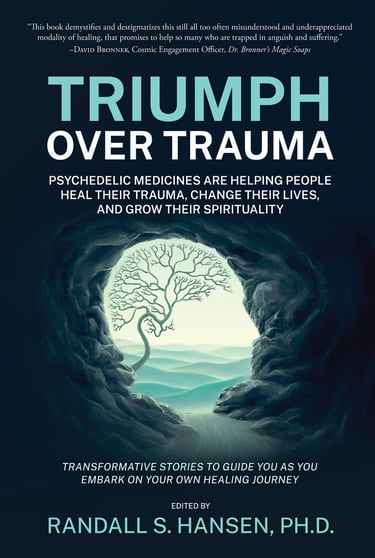Overweight? Don’t Overlook the Role of Obesogens
We have a weight problem, can we admit that? About three-quarters of the adult population in the U.S. are either overweight or obese. The rest of the world is doing better, but catching up as they continue eating the standard ultra-processed food diet, with about one-third overweight and about 12 percent obese. But it’s the burden we are putting on our children living with obesity that is most concerning.
If you know my work, you know my focus regarding health always starts with the foods we are consuming… starting with the understanding that many ultra-processed foods, with their added sugars and seed oils, and manufactured to be hyperpalatable (so that we keep eating), are a major driver of our current weight crisis.
But there is another factor – perhaps almost as sinister as the ultra-processed foods – that deals with certain chemicals that are in our foods and our homes, as well as in the water, soil, and air. These chemicals, we now understand, are wreaking havoc on our metabolism, leading to weight gain.
Obesogens. These substances, which currently receive little attention, especially in the media, have shown that they play a key role in our current health and obesity crisis. Obesogens are endocrine-disrupting chemicals that interfere with metabolism and hormones, especially lipid metabolism, increasing risks of weight gain, obesity, type 2 diabetes, and other diseases.
The endocrine system is basically a messenger system, and when it gets disrupted, the signal becomes corrupted, resulting in things such as interrupting normal metabolism or blocking the use of fat cells for energy.
These chemicals are either used directly on or in our food or in the production and storage of our food. The most common food obesogens are processed food additives, including preservatives, dyes, emulsifiers, flavor enhancers, artificial sweeteners, and high fructose corn syrup.
Make no mistake, though. Obesogens are not just in our foods, but everywhere around us. The good news is that with a bit of time and effort, we can work to reduce our excessive exposures to these substances.
Furthermore, there’s evidence that these chemicals accumulate in the body over time, so it is extremely important to limit exposure as much as you can.
The exact list of major product obesogens includes phthalates, Bisphenol-A (BPA), and PFAS forever chemicals (per-and polyfluoroalkyl). These chemicals are found in a vast number of consumer and industrial products.
Obesogens Are Everywhere
Obesogens are also used or found in these products:
Most nonorganic foods (pesticides, parabens)
Ultra-processed food components (including fructose, non-nutritive artificial sweeteners, trans-fats, preservatives, emulsifiers, artificial coloring)
Medicines (phthalates and parabens)
Anthropogenic prescription drugs, including some antibiotics and antidepressants
Pesticides (including dichlorodiphenyltrichloroethane (DDT), chlorpyrifos, diazinon, permethrin, neonicotinoids)
Nonstick cookware (PFAS)
Plastic food containers (BPA)
Cleaning supplies (phthalates)
Solvents (PCBs)
Personal care items (phthalates)
Furniture (treated with polybrominated diphenyl ethers (PBDEs)
Building materials treated with organotins
Unfortunately, obesogens are also found in our environment, including:
Air pollution (specifically polycyclic aromatic hydrocarbons (PAHs)
Water pollution (that remains in our drinking water supply)
Soil pollution (pesticides, PFAS)
What Do Obesogens Do?
While researchers are discovering more and more about how obesogens work, here are the current commonly understood ways these chemicals affect weight… and thus, health.
1. Increasing Fat Cells in Your Body. Some obesogens signal to your body to make more and bigger fat cells, which directly leads to weight gain.
2. Altering Appetites. Some obesogens signal a part of your brain that controls appetite, specifically triggering a desire to eat past the point of being full/satiated.
3. Blocking Fat Burning. It appears some obesogens disrupt the normal burning of fat cells; thus, the fat cells continue to build up in your body because they are no longer being used for energy.
How to Protect Yourself from Obesogens
The key to protecting yourself is to begin the process of limiting your exposure to these chemicals as much as possible. Start with:
Eating organic foods that are free from chemical pesticides and herbicides.
Not heating any foods in plastic, including steamer bags. Even storing food in cheap plastic containers should be avoided; switch to glass or stainless steel.
Stopping the use of plastic water bottles; use glass or stainless steel.
Tossing out older pots and pans with nonstick coatings. Use newer, ceramic-coated pans or cast iron or stainless steel pans.
Using a water filter, especially when on treated water systems. The Berkey is a great water filter system, but even cheaper filter pitchers are better than nothing.
Going fragrance-free in all cleaning products; ideally, switch out toxic chemical cleaners and detergents for natural ones, such as baking soda and white vinegar.
Removing plug-in air fresheners, candles, and fabric softeners; use essential oils instead.
Switching to organic or natural items for all personal care products.
Limiting the use of flame-retardants and water-repellent products.
You have to take action to reduce your obesogen exposure, as there is little regulation (or interest in further regulation) by the government.
Final Thoughts About Obesogens
Obesogens are pervasive and, unfortunately, here to stay. Thus, the key is doing everything you can to reduce your exposure to these fat-causing, hormone-disrupting chemicals.
Please make a plan to transform your kitchen, change your shopping and eating, stop using plastic with any food or drink, filter your water, and focus on more natural personal care products.
Finally, if you have young children in your household, this issue has to become a top priority, because children are especially vulnerable to obesogens.
Additional Reading About Obesogens
Dr. Randall Hansen is an evangelist, educator, and thought-leader... helping the world heal from past trauma and the poor food system. He is founder and CEO of EmpoweringSites.com, a network of empowering and transformative Websites, including EmpoweringAdvice.com.
He is the author of the groundbreaking Triumph Over Trauma: Psychedelic Medicines are Helping People Heal Their Trauma, Change Their Lives, and Grow Their Spirituality and the well-received HEAL! Wholeistic Practices to Help Clear Your Trauma, Heal Yourself, and Live Your Best Life.
The third book in the Wholeistic Healing Trilogy is the game-changing The HEALing Revolution Diet: A Science-based Approach to Heal Your Gut, Reverse Chronic Illnesses, Lose Weight, Clear Your Mind, and Increase Longevity.
Dr. Hansen's focus and advocacy center around true health and healing journeys that results in being able to live an authentic life filled with peace, joy, love. Learn more by visiting his personal Website, RandallSHansen.com. You can also check out Dr. Randall Hansen on LinkedIn.








